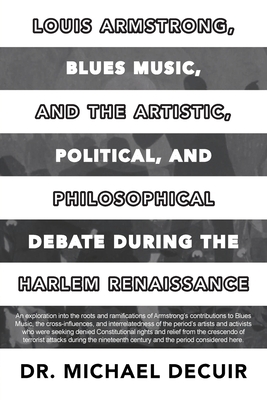Louis Armstrong, Blues Music, and the Artistic, Political, and Philosophical Debate During the Harlem Renaissance

Louis Armstrong, Blues Music, and the Artistic, Political, and Philosophical Debate During the Harlem Renaissance
Decuir also explores blues music as an existential idiom indicative of the African American use of music for more than entertainment or aesthetic fulfillment. Specifically, the enslaved use of song texts to relay messages of escape and danger, the use of field songs to ease the burden of labor, and blues music's role as a vehicle to identify and solve the ills of life in an oppressive existence.
PRP: 74.34 Lei
Acesta este Prețul Recomandat de Producător. Prețul de vânzare al produsului este afișat mai jos.
66.91Lei
66.91Lei
74.34 LeiIndisponibil
Descrierea produsului
Decuir also explores blues music as an existential idiom indicative of the African American use of music for more than entertainment or aesthetic fulfillment. Specifically, the enslaved use of song texts to relay messages of escape and danger, the use of field songs to ease the burden of labor, and blues music's role as a vehicle to identify and solve the ills of life in an oppressive existence.
Detaliile produsului













